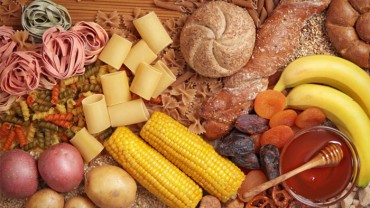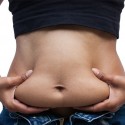BRAT Diet Explained and Other Alternatives
If you have ever had digestive problems or diarrhea, your doctor probably recommended the BRAT diet to you.
BRAT stands for bananas, rice, applesauce, and toast, and these foods are easy to digest and help reduce inflammation in the digestive tract.
However, eating a BRAT diet for any length of time can lead to nutrient imbalance, leading to recent revisions by several key medical groups in their recommendations for treating diarrhea and other digestive problems, especially in children.
Our guide helps you understand the BRAT diet, why it can be helpful, and what other foods contain better nutritional content but can also help relieve diarrhea and other digestive symptoms.
We will share with you what you should eat to calm your stomach, as well as what foods to avoid when you have gastrointestinal problems.
Understanding the BRAT Diet
The combination of bananas, rice, applesauce, and toast has long been a staple for treating digestive disorders, especially diarrhea.
These foods are all easy to digest and bland, which allows an inflamed digestive tract an opportunity to rest and recuperate from whatever illness is causing problems.
New recommendations from the American Academy of Pediatrics suggest that these foods do not provide children with the proper nutrition, and eating a BRAT diet while having diarrhea can lead to malnutrition.
These traditional BRAT foods are low in protein, fat, and fiber, all of which are necessary for children who are healing.
Eating just BRAT foods for a period of longer than 24 hours can lead to undernourishment, so pediatricians now recommend returning to a healthy, well-balanced diet as quickly as possible.
BRAT foods have been highly recommended for so long because they are low in fiber yet binding, which means they can firm up loose stools.
Bananas are an essential part of this diet because of their high potassium content, a nutrient that needs replenishing when you are losing fluids due to diarrhea or vomiting.
The BRAT diet is used to ease your digestive system back into a normal diet after periods of vomiting, diarrhea, or other gastrointestinal distress (1).
The BRAT diet was never meant to be followed for extended periods, as it does not provide sufficient nutrients for children or adults.
While these foods are fine to consume for a few hours, eating only these items for very long can quickly lead to undernourishment.
Within 24 hours of the start of vomiting or diarrhea, you should try to resume a normal, healthy diet that includes foods with higher levels of nutrients.
Research supports the use of a healthy, well-balanced diet while treating diarrhea, as well.
In 2006, researchers examined the impact of a BRAT diet over one that included more nutrient-rich foods.
Those who ate foods that were low in fat, low in insoluble fiber, free of lactose, high in soluble fiber and free of caffeine were more likely to have fewer episodes of diarrhea and more improvement in stool consistency than those who just ate BRAT foods (2).
Bulking foods do not have to lack nutrients in order to be effective, and eating only BRAT foods may not be helping your digestive symptoms as much as you would like.
The next time you have diarrhea or vomiting, include the following foods in your diet to start feeling better faster.
The Best Anti-Diarrheal Foods
The foods included in our list are ones that are easy to digest and provide you with the right kind of fiber to help ease diarrhea.
These foods are also good for boosting your immune system, assisting with nutrient absorption, and giving you the fluids and nutrients you need to stay energized enough to get better quickly.
Oatmeal
When you have diarrhea, soluble fiber can help provide bulk to loose stools, helping you make fewer trips to the bathroom.
Oats are a gluten-free food that is also high in soluble fiber, while also being bland and easy to eat.
Soluble fiber attaches to the toxins and microbes in your digestive system as it passes through, helping to eliminate potential sources of your gastrointestinal problems, as well.
Oat bran is a natural diarrhea remedy that is effective at reducing loose stools, as well as promoting better digestion (3).
Bananas
Bananas, a part of the original BRAT diet, are also a good choice when you have diarrhea.
In addition to providing high amounts of potassium, which can replace electrolytes lost from vomiting or diarrhea, bananas also help firm up loose stools.
A good option when you have diarrhea is to opt for green, unripe bananas.
The starches in these fruits are resistant to the digestive enzymes in your stomach and intestines, providing more bulking agent in your colon to firm up loose stools.
Green bananas, when added to other anti-diarrheal foods, can reduce the severity and duration of diarrhea symptoms (4).
Green bananas should be cooked before eating.
Place unripe bananas in water with a bit of salt, then bring this to a boil. Reduce heat and simmer for five minutes.
The bananas should be tender.
Drain, then eat this fruited plain or mixed with other anti-diarrheal foods, such as oatmeal.
Water
It is easy to become dehydrated when you have diarrhea or are vomiting.
Dehydration can happen quickly, especially when you do not feel well and do not feel much like eating or drinking.
But getting plenty of water will not only ensure you do not become dehydrated but will also help you heal faster.
You should be drinking sufficient clear liquids to keep your urine a pale yellow, which is usually at least ten glasses of water each day.
If you have diarrhea, drink a glass of water every time you have a loose bowel movement.
The best liquids are water, coconut water, herbal tea, broth, and drinks containing electrolytes.
Avoid sugary beverages such as soda, fruit juices, and sports drinks (5).
Bone Broth
To support your immune system and the rebuilding of the helpful bacteria in your gastrointestinal system, drink bone broth.
This liquid is not only nourishing for your body but also helps you regrow the healthy microflora in your gut that gets wiped out by illness and inflammation.
Bone broth is easy for your system to digest, is soothing, and provides you with the needed liquids and nutrients when you are suffering from vomiting or diarrhea.
Probiotic-Rich Foods
Foods rich in probiotics will also help you replenish the natural, healthy levels of bacteria in your digestive system.
The probiotic strains most helpful during gastrointestinal illness include Lactobacillus GG and S. boulardii, which can be found in many probiotic foods and supplements.
Eating probiotic-rich foods or taking probiotic supplements can reduce both the duration of diarrhea and the severity of symptoms (6).
Fermented foods are good sources of probiotics, so be sure to eat plenty of cultured yogurts, kefir, kimchi, kombucha, and other foods that contain these healthy strains of bacteria on which your body relies to help fight unwanted pathogens.
Miso, apple cider vinegar, and sauerkraut are also excellent sources of natural probiotics.
Vegetable Juices
While your body still needs nutrients when you are suffering from gastrointestinal distress, eating lots of raw or cooked vegetables can be hard on your already-taxed digestive system.
Drinking fresh juices made from vegetables is one way to get those essential nutrients in a form that is easier for your system to digest.
The best vegetables to help you heal your GI problems include root vegetables, spinach, celery, and ginger.
These vegetables and plants provide minerals necessary for the nourishment of your digestive tract, and they can help remove the toxins that may be making you sick.
Carrots alone are a wonderful source of Vitamins A, C, D, E, and K, as well as plenty of calcium, potassium, and magnesium.
Vegetable juices, especially those that are freshly pressed, are excellent sources both of soluble fiber as well as of necessary liquids and electrolytes.
Mashed Potatoes
There is something comforting about eating mashed potatoes, and as a good source of potassium, they make an excellent addition to your diet when treating diarrhea or vomiting.
Be sure to remove the skins, as they can worsen diarrhea.
Avoid adding too much salt, dairy products, or other flavorings when making mashed potatoes while treating diarrhea.
Keep them simple and they can help ease hunger, provide good nutrition, and reduce diarrhea symptoms.
Sweet Potatoes
Sweet potatoes are a nutritional powerhouse that should be included in any diet used to treat diarrhea.
Sweet potatoes are rich in Vitamins A, C, and B6, and they are an excellent source of potassium.
These anti-inflammatory nutrients are beneficial when treating diarrhea.
In addition, sweet potatoes provide plenty of soluble fiber, which is necessary when treating diarrhea.
Sweet potatoes are absorbed slowly by the body, making them a good choice when your digestive system is not working at full capacity.
Keep preparation simple, as with white potatoes, going easy on the added salt, fats, or sugar, which can raise your levels of inflammation.
Flaxseed Oil
Flaxseed oil is another good option for treating diarrhea.
A rich source of omega-3 fatty acids, flaxseed oil can reduce inflammation, provide you with the fats necessary for creating energy while you are sick, and it can help boost your immune system while you fight off the source of your gastrointestinal distress (7).
Chicken or Other Lean Protein
Chicken, especially the white meat, provides needed protein while you are sick but also is easily digestible by your ailing system.
You must use simple preparation methods to keep the chicken bland, though. Steaming, poaching or baking are your safest options.
Do not use any oils or other fats when preparing your chicken, and avoid added seasonings, other than a small amount of salt.
You can use chicken broth for basting if you opt to roast or bake your chicken.
Other good sources of protein when treating diarrhea include turkey, pork, and fish.
Ginger
Ginger is a natural digestive aid that has been used for centuries to treat nausea, vomiting and other GI symptoms.
Ginger is also effective for treating diarrhea, as it calms and soothes the muscles of the digestive system (8).
Ginger can help destroy unwanted bacteria, too.
Include ginger in your fresh vegetable juice, drink it in herbal tea, or inhale ginger essential oil using a diffuser.
Peppermint Oil
To soothe digestive muscles and reduce bowel inflammation, another effective tool is peppermint oil, which also helps to reduce loose stools.
The calming effect of peppermint on your body can be particularly helpful when you have diarrhea, as it soothes inflammation in the gastrointestinal linings by reducing muscle spasms.
As an anti-spasmodic remedy, peppermint oil can assist with a variety of gastrointestinal problems (9).
Foods to Avoid When Treating Diarrhea
Just as important as knowing what you should eat when you have been vomiting or have diarrhea, it is equally important to know what foods you should avoid during these types of illnesses.
Foods that irritate and aggravate your system, foods that travel too quickly through your system, and foods that are difficult to digest should be avoided when you have diarrhea or other GI symptoms.
To improve your diarrhea symptoms more quickly, avoid these foods:
- High-fat foods, including anything greasy or fried.
- Foods covered in sauces, such as gravy.
- Conventional dairy products, especially butter, milk, and cheese. When you have diarrhea, you can become very sensitive to lactose, even if you were not previously lactose intolerant. Avoid these foods while you have loose stools, to prevent more problems. The only exception to this is yogurt, as it contains necessary and helpful probiotics.
- Alcohol of any kind. Alcohol is a diuretic, which can lead to further dehydration.
- Sodas and other sugary beverages.
- Artificial sweeteners, such as sorbitol, which can have a laxative effect, especially when you already have diarrhea.
- Foods that produce excess gas, such as cruciferous vegetables and beans. These are more difficult for your system to digest.
- Foods high in salt, spice, or other flavorings, which can irritate your system.
Precautions
The BRAT diet has been recommended by physicians for decades for the treatment of diarrhea, but new understanding about gastrointestinal disorders has helped us understand that this diet does not provide adequate nutrition to anyone, especially children.
New recommendations include returning to a normal, well-balanced diet within 24 hours of the onset of diarrhea or vomiting, whenever possible.
If you or someone you are caring for is ill and has been eating the foods recommended for several days without improvement, call your doctor.
A healthcare professional will need to determine the nature and cause of your diarrhea to ensure it is not the result of a more serious disease or disorder.
More extensive treatment may be necessary in cases of severe or chronic diarrhea.
Anyone with diarrhea for multiple days should be very concerned with dehydration, especially children.
Make sure you are getting plenty of fluids when you are vomiting or have diarrhea.
Your urine should be a pale yellow color, and if it is not, you need to increase your fluid intake.
The conventional BRAT diet consisted of bananas, rice, applesauce, and toast, which are all foods your body can digest easily.
These do not provide many nutrients, though, so you should add other foods to this diet to help relieve diarrhea, as well as provide your body with adequate nutrition.
For the first 24 hours after the onset of diarrhea or vomiting, the BRAT diet may be helpful, but you should never continue eating just these foods for longer than this time period.
You will quickly begin to feel worse due to lack of proper nutrition.
When you have diarrhea, other foods you can eat to help relieve your symptoms include oatmeal, water, bananas, bone broth, probiotic-rich foods, vegetable juices, mashed potatoes, sweet potatoes, flaxseed oil, ginger, plain chicken, and peppermint oil.
If you are still experiencing symptoms of diarrhea after four days of an anti-diarrheal diet, call your physician.
This timeframe is two days for infants and children, who can become dehydrated and malnourished much more quickly.
FDA Compliance
The information on this website has not been evaluated by the Food & Drug Administration or any other medical body. We do not aim to diagnose, treat, cure or prevent any illness or disease. Information is shared for educational purposes only. You must consult your doctor before acting on any content on this website, especially if you are pregnant, nursing, taking medication, or have a medical condition.
HOW WOULD YOU RATE THIS ARTICLE?






